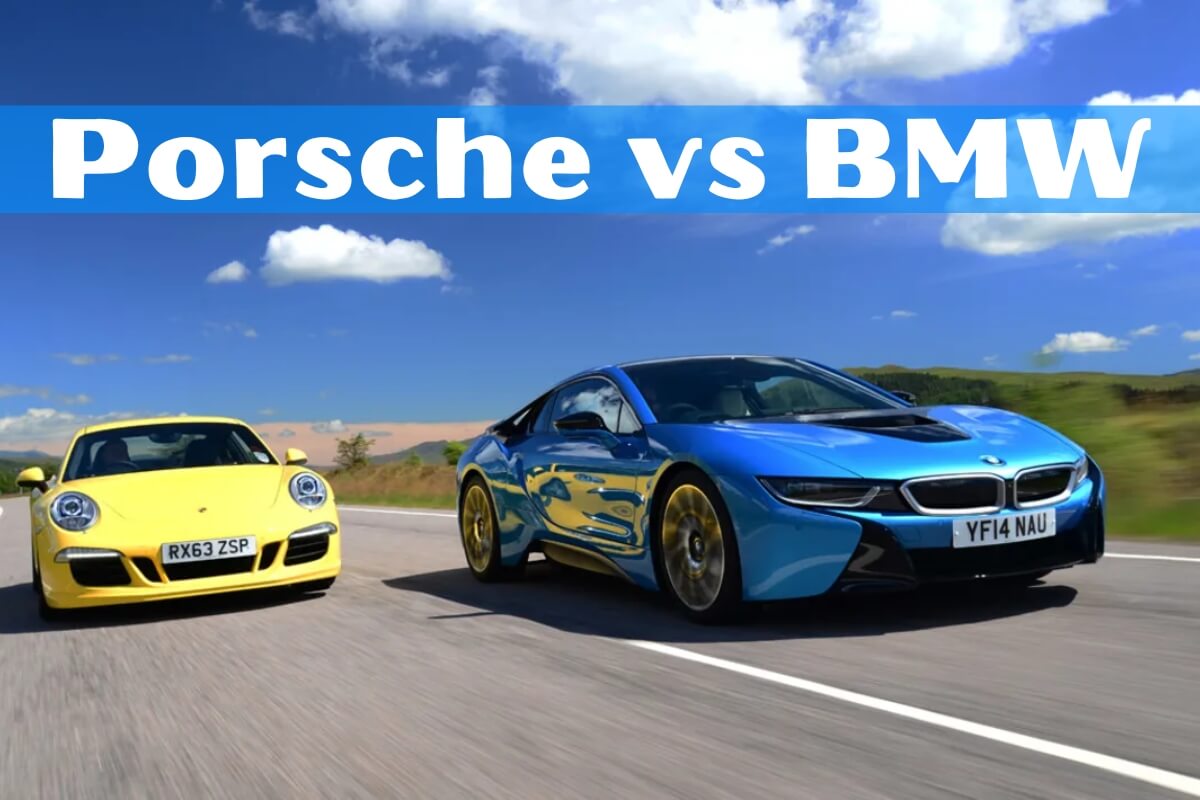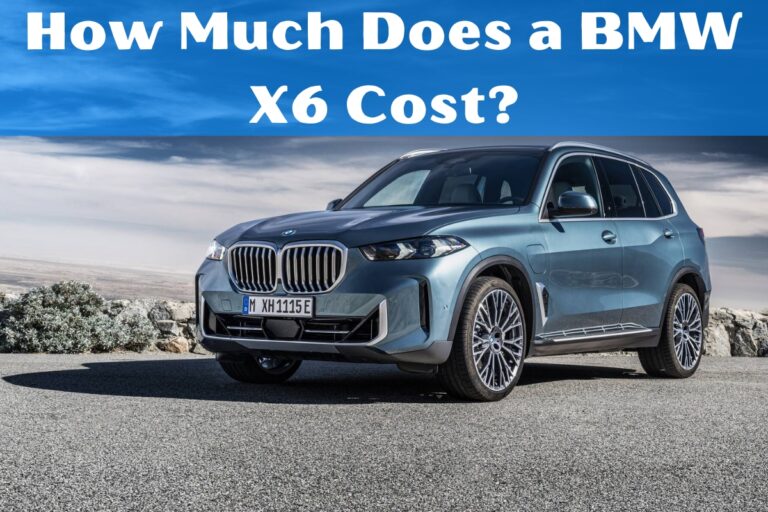Porsche vs BMW: The Ultimate German Luxury Showdown

Are you torn between buying a Porsche or a BMW for your next luxury vehicle? This in-depth Porsche vs BMW comparison guide covers everything you need to know about these two prestigious German automakers – from performance and driving dynamics to interior quality, reliability, ownership costs, and model lineups.
When it comes to premium German automotive brands, few names carry as much prestige and cachet as Porsche and BMW. These marques have built global reputations for engineering excellence, luxurious appointments, and a passion for driving dynamics that borders on the fanatical.
However, while they share some similarities in their upscale positioning and performance-oriented philosophies, Porsche and BMW go about achieving their lofty goals in distinctly different ways. Choosing between the two can be a daunting task for even the most discerning luxury vehicle buyer.
When it comes to high-performance cars, two names stand out: [Brand X] and [Brand Y]. But which one is right for you? We’ll compare their speed, handling, interior comfort, and ownership costs to help you make an informed decision. We’ll also explore their model ranges to find the best fit for your needs and lifestyle.
A Tale of Two German Auto Giants
While both hail from Germany, Porsche and BMW have taken very different paths to automotive greatness over their long, storied histories.
Porsche’s origins date back to 1931 when Ferdinand Porsche founded his engineering consultancy firm in Stuttgart. Its first production model, the legendary 356, didn’t arrive until nearly two decades later in 1948. This rear-engined sports car married thrilling dynamics with everyday usability and kicked off Porsche’s enduring motorsports legacy.
The iconic 911 arrived in 1963 and quickly cemented itself as one of the world’s preeminent high-performance machines. With its unique rear-mounted flat-six engine, precision German engineering, and a single-minded dedication to on-track excellence, the 911 established Porsche’s ethos – uncompromising performance wrapped in a road-legal package.
BMW (Bayerische Motoren Werke), on the other hand, traces its roots back to 1916 as an aircraft engine manufacturer. After pivoting to motorcycles and automobiles in the wake of World War 1, BMW developed a reputation for building sporty luxury cars that lived up to their “Ultimate Driving Machine” tagline.
While they started from vastly different beginnings, both brands eventually evolved into builders of premium performance vehicles for the street and track. Their reputations as makers of some of the world’s finest driver’s cars transcend national boundaries.
Performance and Driving Dynamics Compared
When it comes to pure, electrifying performance and finely-honed driving dynamics, it’s hard to beat what Porsche and BMW bring to the table. However, there are some key distinctions in how they deliver their ultimate driving thrills.
Porsche’s Motorsports Mastery
No discussion of automotive performance is complete without examining Porsche’s illustrious history of racing excellence. The 911’s credentials are unimpeachable – it’s one of the most successful competition cars ever with over 28,000 racing victories across virtually every venue, from Monaco’s glamorous street circuit to the grueling 24 Hours of Le Mans.
This hard-earned racing pedigree extends to Porsche’s road models. Their mid-engine layout, lightweight construction philosophies, and laser-focused tuning for on-track prowess result in scintillating performance and telepathic handling responses few competitors can match.
Even Porsche’s SUVs, like the Cayenne and Macan, exhibit sportier demeanors than you’d expect from high-riding family haulers. With tenacious grip and the latest chassis control wizardry, they shame many dedicated sports cars in the twisties.
Porsche 911 vs BMW M8
Let’s look at how Porsche’s iconic 911 sports car stacks up against BMW’s flagship performance coupe, the all-new M8:
- 0-60 mph: Porsche 911 Carrera S – 3.5 seconds | BMW M8 Competition – 3.0 seconds
- Top Speed: Porsche 911 Carrera S – 191 mph | BMW M8 Competition – 189 mph
- Power: Porsche 911 Carrera S – 443 hp | BMW M8 Competition – 617 hp
- Engine Layout: Porsche 911 – Rear-engine | BMW M8 – Front-engine
While the M8 edges out the base 911 in outright acceleration and thrust, the Porsche counters with its iconic rear-engine layout that imbues it with unflappable poise and sublime handling capabilities no matter how aggressively you push it.
BMW’s “Ultimate Driving Machines”
If Porsche builds the world’s definitive sports cars, BMW could lay claim to creating its most engaging and dynamically impressive luxury sedans, coupes, and SUVs. The Bavarian automaker’s mantra of building “Ultimate Driving Machines” isn’t just marketing fluff – it manifests itself in vehicles that thrill enthusiasts without compromising everyday livability.
BMW’s approach revolves around combining potent turbocharged power plants with expertly tuned chassis setups that mask their larger dimensions with wonderfully tactile steering and a real sense of connection between car and driver.
Case in point – the latest M3 sedan and M4 coupe pack a 473hp twin-turbo inline-six that hurls them to 60 mph in just 3.8 seconds. More importantly, their meticulously sorted suspensions and fundamentally sound rear-wheel-drive platforms allow skilled pilots to explore their handling limits with confidence.
Porsche Macan vs BMW X3 M40i
This Porsche vs BMW performance duel extends to their premium compact SUV offerings:
- 0-60 mph: Porsche Macan Turbo – 4.3 sec | BMW X3 M40i – 4.4 sec
- Top Speed: Porsche Macan Turbo – 167 mph | BMW X3 M40i – 155 mph (limited)
- Power: Porsche Macan Turbo – 434 hp | BMW X3 M40i – 382 hp
- Engine: Porsche Macan Turbo – Twin-turbo V6 | BMW X3 M40i – Turbo Inline-6
The Turbo treatment gives the Macan a serious performance edge against the hotted-up X3 M40i. However, don’t discount BMW’s SUV as a driver’s delight – its well-balanced chassis and eager engine make it immensely enjoyable from behind the wheel.
No matter whether your need for speed leans more towards all-out track domination or everyday thrills, both Porsche and BMW have you covered across their model ranges. But outright performance is just one aspect where these brands aim to differentiate themselves in the premium vehicle space.
Luxury and Interior Quality Head-to-Head
While hardcore driving enthusiasts might prioritize raw speed and handling prowess above all else, most luxury buyers expect their high-end vehicles to coddle them in supple, beautifully crafted cabins befitting their lofty price tags. How do Porsche and BMW’s premium interiors measure up?
Porsche’s interior designs have steadily evolved from their stubbornly austere early roots into paragons of modern automotive luxury. Across their lineup, you’ll find exquisite materials, outstanding build quality, and an unmistakable sense of driver-focused functionality.
The new 911’s cockpit is an ideal example with its low, horizontal dashboard, analog tachometer front and center, and ample use of soft-touch surfaces, brushed metals, and available luxuries like supple leather upholstery. The combination of impeccable craftsmanship and uncompromised grand touring comfort epitomizes Porsche’s vision.
BMW brings its own unique sense of luxury to the table. The brand’s cabins are typically subtler, more restrained than Porsche’s overt athletics with a penchant for high-tech features and digital displays dominating the designs.
Take the all-new 7 Series flagship sedan as a prime example. Its cabin melds clean, modern lines with a bevy of premium woods, leathers, and metallics plus cutting-edge tech like cloud-based navigation, 5G connectivity, and an immersive Bowers & Wilkins audio system. The wow factor is undeniable.
Both take a “you get what you pay for” approach with their pricier models receiving the most lavish appointments. But regardless of budget, Porsche and BMW deliver premium interior surroundings aligned with their positioning as standard-bearers of European luxury and craftsmanship.
Reliability and Ownership Costs
Purchasing a premium vehicle from an esteemed marque like Porsche or BMW is a significant investment that shouldn’t be made lightly. While both brands build vehicles of exceptional quality, there can be some stark differences when it comes to long-term reliability and ownership costs over time.
According to J.D. Power’s 2022 Vehicle Dependability Study, which measures problems experienced after three years of ownership, Porsche ranks an impressive 4th while BMW lags behind in 18th place out of 32 brands. Similarly, Consumer Reports data shows Porsche earning above-average reliability ratings versus BMW hovering around the average mark.
This disparity likely stems from Porsche’s laser-focused model lineup that allows them to meticulously engineer each product. In contrast, BMW juggles a sprawling range of sedans, coupes, SUVs, and electrified models that may suffer from complexity creep.
When it comes to maintenance and repair bills, the news again favors Porsche despite their costlier parts and labor rates. Data indicates the average Porsche owner spends around $1,200 annually on routine upkeep versus roughly $1,400 for BMWs. Projected long-term costs of over 500,000 miles also see Porsche models like the 911 costing nearly $10,000 less than BMW’s 3 and 5 Series models over their lifetimes.
However, BMW does provide one key ownership advantage – its vehicles tend to depreciate faster than Porsches, making them slightly more affordable on the used market despite their higher upfront sticker prices when new. A 3-year-old BMW typically retains around 50% of its original MSRP versus 60% for a same-age Porsche.
So while you’ll pay more upfront for that Stuttgart badge, Porsche helps offset that initial premium with lower operating costs and better residual values down the road. It’s a trade-off worth considering if you plan to keep your premium German ride for the long haul.
Diverse Model Lineups for Every Lifestyle
One of the great strengths of both the Porsche and BMW brands is the diversity of their product portfolios. From track-devouring sports cars to plush luxury sedans and family-friendly SUVs, these automakers have you covered whether your priority is all-out performance or all-around versatility.
Porsche’s lineup is more tightly focused around their iconic sports car roots. The rear-engine 911 and mid-engine 718 Boxster/Cayman models are the brand’s crown jewels, epitomizing their commitment to pure driving thrills. The Panamera sport sedan and Cayenne/Macan SUV models bring Porsche’s performance pedigree to more practical body styles.
At the ultra-premium end, the all-electric Taycan sport sedan showcases Porsche’s EV capabilities in breathtaking 1,051 hp Turbo S trim.
BMW casts a wider product net while still adhering to their “Ultimate Driving Machine” ethos across their entire range. For enthusiast drivers, the brand offers an alphabet soup of performance models headlined by the iconic M3 sport sedan and its two-door M4 coupe counterpart. Their latest M5 super sedan aims squarely at the Panamera with a 600hp twin-turbo V8.
More pragmatic buyers are treated to a full gamut of luxury sedan (3, 5, and 7 Series), SUV (X3, X5, X7 etc.), and even a handful of coupes like the sleek 8 Series Gran Coupe. BMW’s electrification efforts are spearheaded by the fully-electric iX SUV and the plug-in hybrid i7 flagship sedan.
Personalizing your Porsche or BMW is also a core part of the brand experience with robust options lists and bespoke customization programs. Porsche’s Exclusive Manufaktur program allows buyers to truly craft one-off creations tailored to their precise specifications inside and out. BMW’s Individual program grants similar opportunities to commissioned unique exterior paints and interior trims.
Both brands build an expansive array of models to suit virtually every want and need, albeit in different ways. At the most basic level, Porsche appeals more to those seeking pure, focused performance above all else, while BMW’s “something for everyone” mentality prioritizes elegant luxury and premium versatility.





